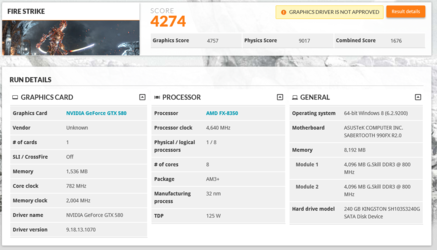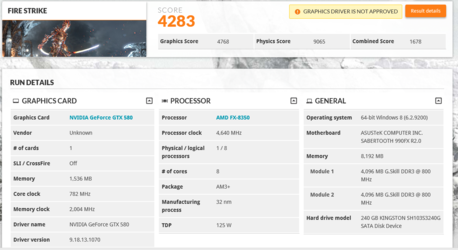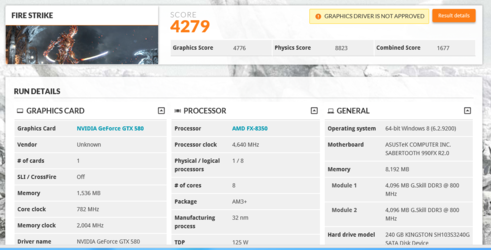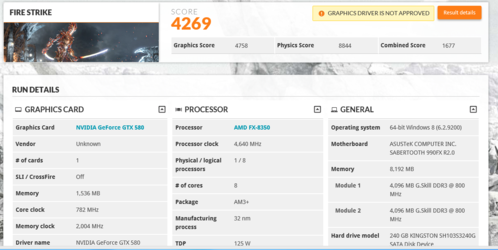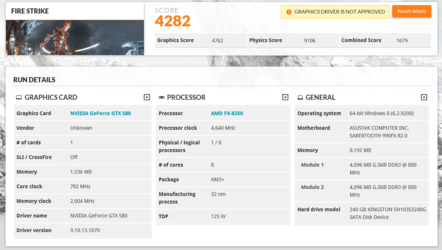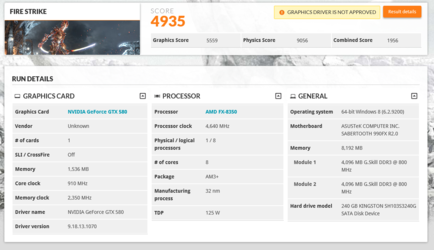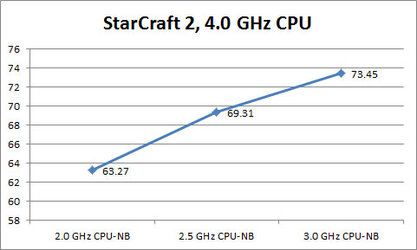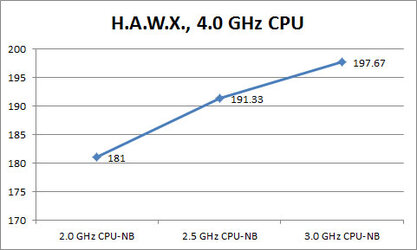storm-chaser
Disabled
- Joined
- Sep 2, 2011
- Location
- Upstate NY
While you are right that increased CPUNB improves overall system performance, and at no point have I challenged that,
Look I don't want this to get out of hand I just want to say thanks for the challenge and everyone has contributed some valid points. My explanation there was to simply enlighten you to the fact that NB performance does actually have a big impact on graphics performance. For the sake of accurate information to other members and over clocker enthusiasts this is an important point. Here is your position, quoting from your 1st and 2nd response:
Cpunb frequency doesn't make a meaningful impact for 3d performance which is cpu limited
and this:
you are completely out to lunch on the level of impact this has. While you can be theoretically on the right track, without actual testing data or any specific real world numbers to properly frame your opinion
and this:
CPU-NB just doesn't have that meaningful of an impact on 3D performance
and this:
What you are missing here, in a CF situation, the bottleneck is the CPU's computational ability - that is improved in a very moderate way by increasing CPU-NB speeds, but it doesn't eliminate the problem.
Of course, the CPU will ultimately be the bottleneck in a CF situation like this, and the computational ability of the cores is not as effected by the NB overclock, which I concede, but that fact is not really applicable since most games utilize only one or two cores (and this is where the NB overclock really shines) Thus, I stand by my original statement that he will have less of a CPU bottleneck (and better FPS) with the high NB speed.
These quotes, direct from the article, should clarify any remaining doubts:
What we did not expect was that a similar pattern would emerge from our CPU-NB testing. Our experiment with Thuban’s CPU-NB was truly strange. In applications that can take advantage of as many cores as 6, the gains achieved by CPU-NB overclocking was rather small. It’s there, but not to the point of writing home about. On the other hand, overclocking CPU-NB greatly benefited less-threaded applications, namely games. This can also be observed from the X264 HD 3.0 test, where the less intense first pass yields much better scaling with CPU-NB overclocking than the second pass.
and:
Both at 3.2 GHz and 4.0 GHz, the CPU-NB overclocking yielded 16% more performance in this game without moving an inch of the CPU frequency.(StarCraft 2, very cpu intensive, with NB @ 3.0ghz)
If you have a minute, can you post up some some results of the testing you did showing that it will improve FPS in games (canned benchmark is best) or even synthetic benchmarks (focusing on the GPU score). I've seen both sides of this discussion before but not really any benchmarks.
Thanks!
Yes EarthDog! Here is the link to the complete article, which completely backs up my position:
http://www.anandtech.com/show/3877/...n-investigation-of-thuban-performance-scaling
